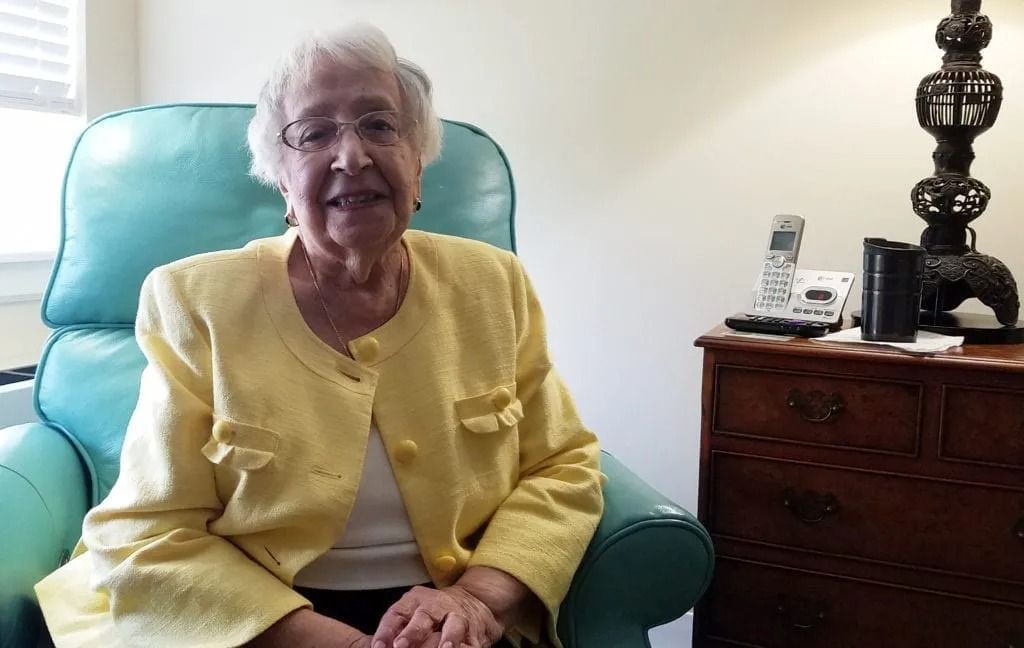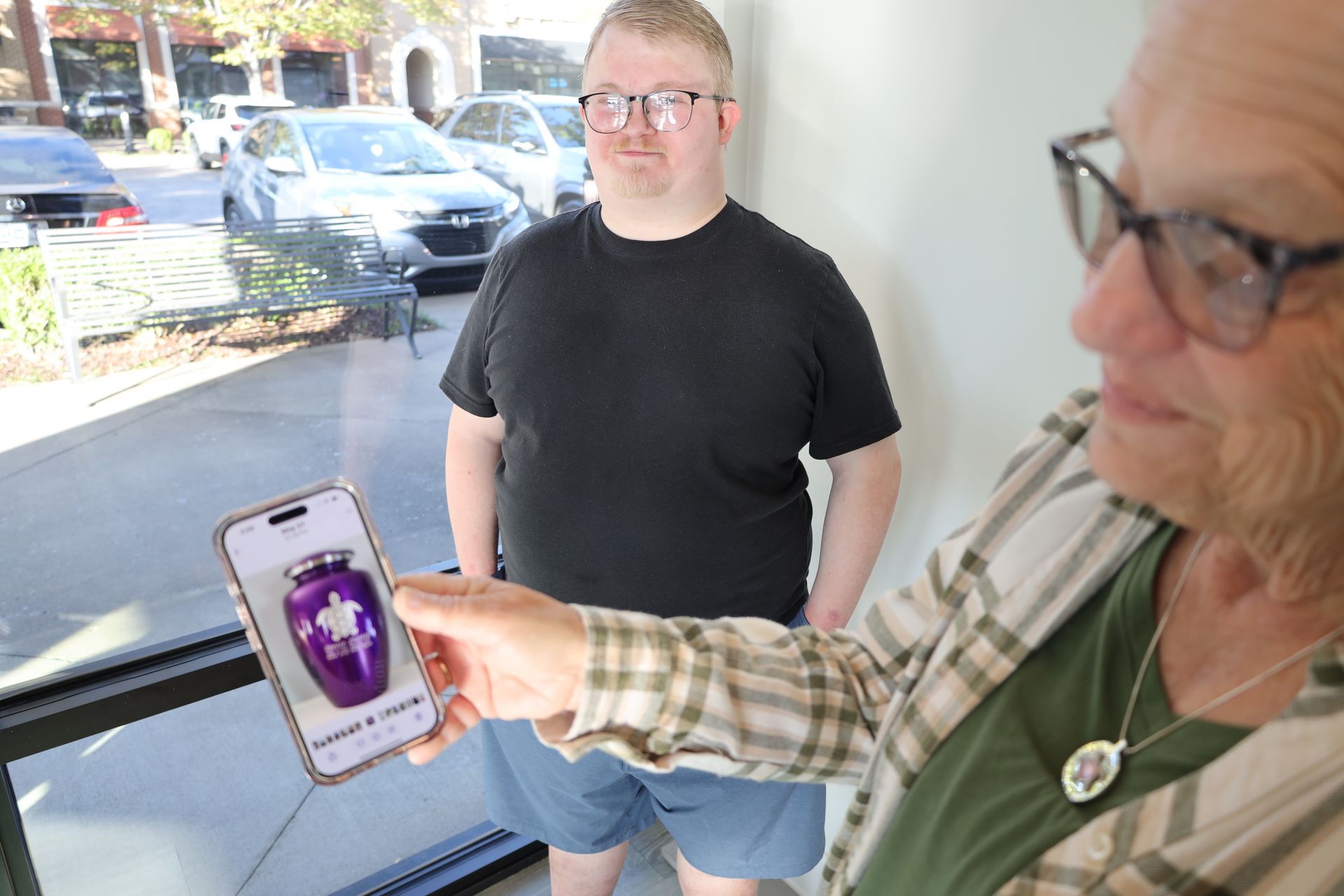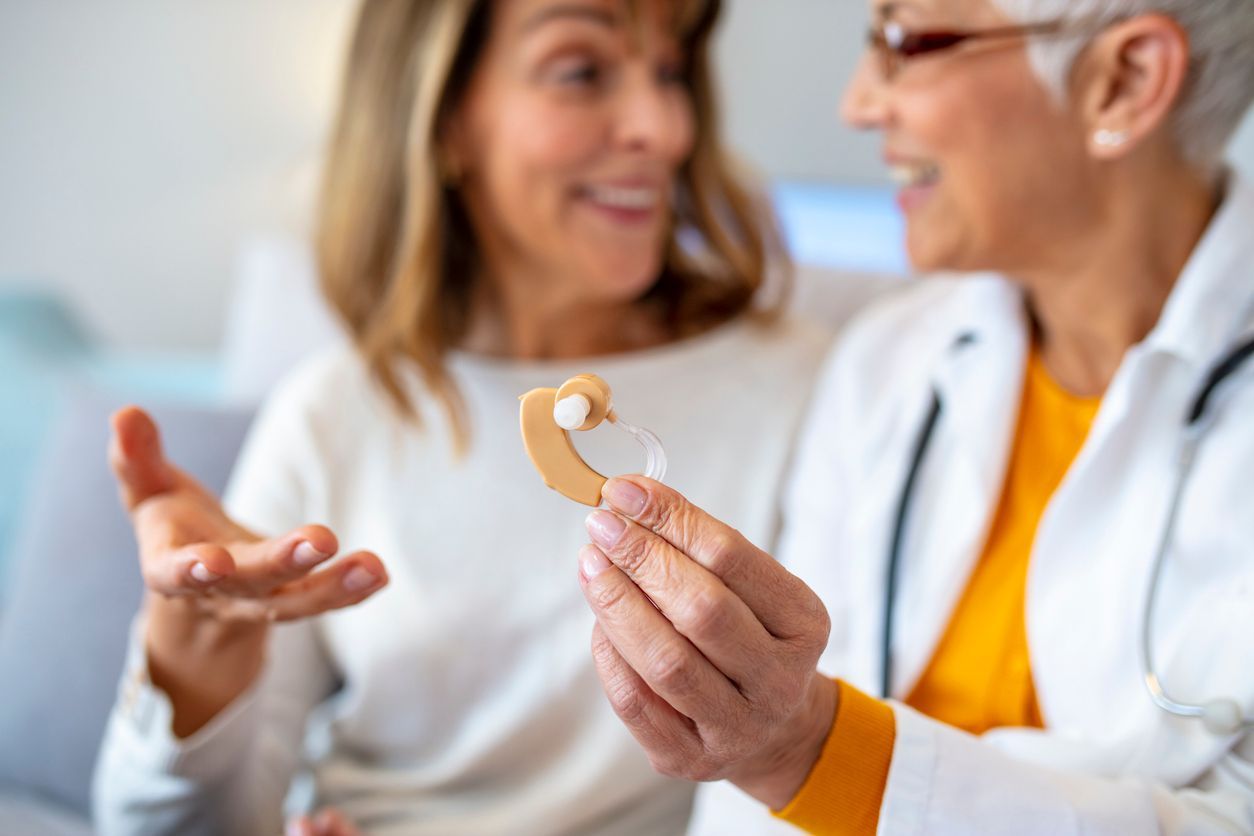“It’s Never Too Early Or Too Late To Get Hearing Aids” – Mary Harris’ Story

As we focus during May on celebrating Older Americans Month and Better Hearing and Speech Month, longtime Johnson Audiology patient Mary Harris’ journey to better hearing is a fitting one for the telling
You see, now 108 years old, Mrs. Harris got her first set of hearing aids at 103, proving that, as she says “it’s never too early or too late to address your own hearing health care.”
Interviewing Mrs. Harris, a resident of Signal Mountain’s Alexian Village, for this feature was indeed an interesting hour as she recounted a life spent watching the world change in very drastic ways. At the time of this interview last Fall 2018, the world was marking the 100 th anniversary of Armistice Day, that pivotal historic milestone when the cessation of hostilities between the Allies and Germany became official, and the world’s bloodiest war—at least up to that point—drew to a close.
Mrs. Harris remembers that day—November 11, 1918—well as she says the whole world seemed to come together to take a deep, collective sigh of relief and celebrate the end of World War I. People around the world had been instructed to go outside and join together with neighbors and friends for a time of reflection, commemoration and celebration “on the eleventh hour of the eleventh day of the eleventh month.” Mrs. Harris says she and her family did just that. “I was seven years old at the time, and I remember mother giving me pots and pans and spoons to make noise with. We went out on the front lawn, and all up and down the street our neighbors were out doing the same,” Mrs. Harris relates. One hundred years later, Mrs. Harris remembers vividly the sounds from that day, punctuating how our sense of hearing can mentally cement the events that pave the foundation of our life’s story and link us together with others.
For more than 95 years, Mrs. Harris engaged with her world through sound with seemingly little to no hearing loss, quite a feat since the National Institute on Deafness and other Communication Disorders shows that an estimated 28.8 million Americans could benefit from hearing aids as a way of addressing their hearing loss.
As is often the case in families where a member has hearing loss, one of Mrs. Harris’ daughters was the first to notice when her mother started asking her to repeat herself. The issue seemed less pronounced when she was looking straight at her mom, a common warning sign of hearing loss since the individual is filling in the gaps by lip-reading. “Reading lips and gestures tends to be a common coping mechanism for people with hearing loss,” says Megan Johnson, Au.D., the founder of Johnson Audiology. “A person’s brain is having to work overtime when they are challenged with hearing loss. This can lead to ‘listening fatigue’ that can affect the person in a myriad of ways from decreased awareness of surroundings, which can cause safety concerns, to accelerated brain tissue loss over time.”
Mrs. Harris is the perfect example of a person who took control of her own hearing health, not waiting years to be tested and fit with hearing aids. Fewer than 30% of those with hearing loss have ever actually used hearing aids. In fact, research suggests that most hearing aid users wait at least 10 years after the onset of their hearing loss to seek intervention.
While Mrs. Harris says she was a bit resistant when her daughter first mentioned it, she quickly realized that being able to hear her friends and family was a simple quality of life choice and that stubbornness was not going to cause her to miss out on engaging fully in the world around her. Johnson says, “I remember Mrs. Harris’ first appointment in the summer of 2014 when she was 103 years old. I applaud her choice to act quickly.”
Johnson goes on to say that for those who are candidates, hearing aids treat hearing loss by giving the user access to sounds they are unable to detect with their ears alone, improving speech understanding and awareness of environmental sounds. “One of the first things Mrs. Harris mentioned to me at her hearing diagnostic appointment was her difficulty in understanding normal speech,” Johnson says. The large population of patients with untreated hearing loss is not only missing out on these direct benefits, but also are at risk for additional physical and psychological health issues.
Hearing loss affects every individual differently, but research has identified numerous potential negative consequences that are more likely to arise in people who are hearing impaired. One of the most basic concerns with untreated hearing loss is general safety. Sounds such as alarms, sirens, car horns, or verbal warnings can signal threats to personal safety, prompting individuals to react accordingly and protect themselves. Inability to detect these signals can therefore put a person in danger.
The list goes on, Johnson says. “Decreased environmental sound awareness also has been associated with an increased risk of falling and thus for injury. Hearing loss has an emotional impact as well. It is linked to increased feelings of depression, anxiety, frustration, and social isolation. This likely stems from the impaired communication that results from declined speech understanding,” she says.These connections highlight the importance of addressing hearing loss as soon as it is noticed. Whether seeking intervention, concerned about a medical issue, or simply monitoring hearing status, Johnson says that “we all need to start thinking of addressing our hearing health as just another way of addressing our overall body health.”
Mrs. Harris continues to have appointments with Johnson Audiology whenever she needs supplies, regular maintenance or a programming adjustment on her hearing aids. The audiologists from Johnson Audiology visit once a month to offer various hearing health care services to Alexian residents. Additionally, all five of offices of Johnson Audiology are accepting new patients.
Mrs. Harris’ suggestion to others about hearing aids is as no-nonsense and straightforward as her seven-year-old self banging on pots and pans at the Armistice Day celebration: “If you need hearing aids, I would say you need to get them.” Sound advice from this lady who has heard a few things in her 108 years.
Recent Posts



